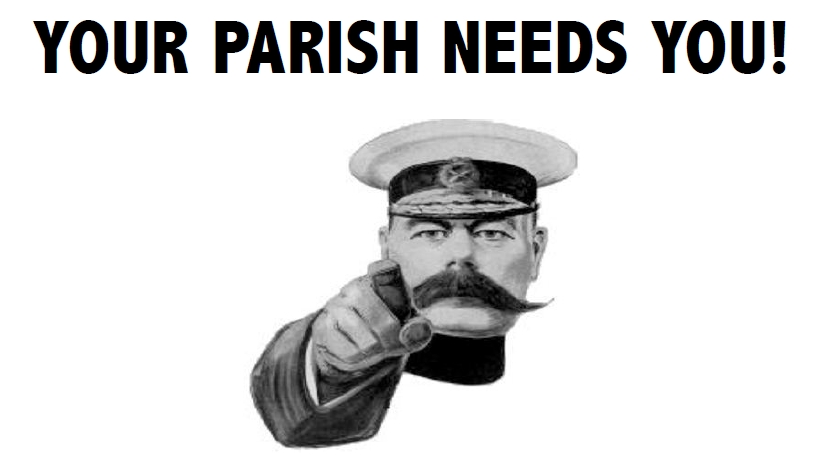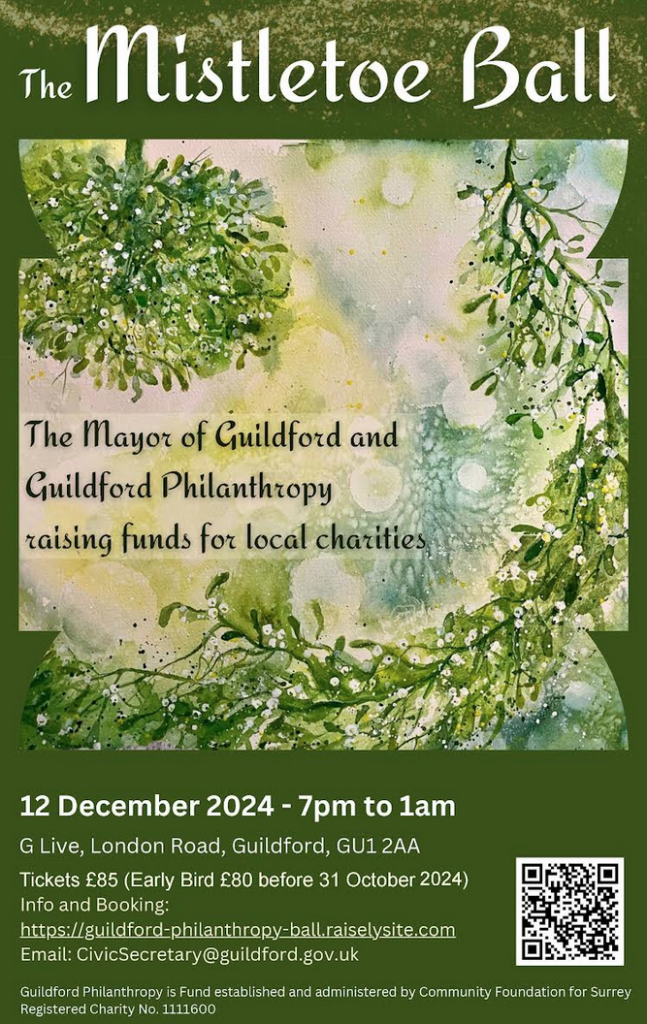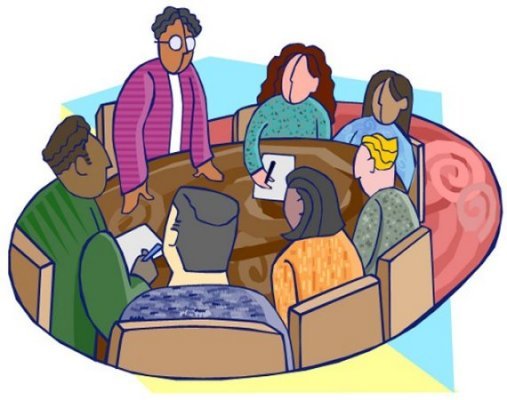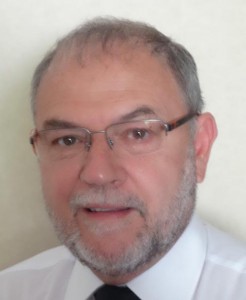 Abraham Lincoln
If given the truth, the people can be depended upon to meet any national crisis...
Abraham Lincoln
If given the truth, the people can be depended upon to meet any national crisis...
 Guildford news...
for Guildford people, brought to you by Guildford reporters - Guildford's own news service
Guildford news...
for Guildford people, brought to you by Guildford reporters - Guildford's own news service
Opinion: Who Did You Vote For In Your Parish Council Election?
Published on: 7 Aug, 2015
Updated on: 12 Aug, 2015
Bill Nelson is the chairman of Seale and Sands Parish Council. In a series of articles he will explore the role of parish councils in local government and why it is so hard to attract candidates to stand as parish councillors.
The elections in May (2015) produced a few surprises: the Conservatives got a majority, Labour lost more seats than expected, many to SNP which almost wiped the floor in Scotland. UKIP attracted almost 4 million votes, almost 1.5 million more than the Lib Dems.
Less surprising perhaps was that in the borough council election the Conservatives increased their majority slightly despite the advent of the Guildford Greenbelt Group who won three seats.
But what happened in your parish council? Do you know? If you live outside of Guildford town you do have one and elections for parish councils were held too.
Parish councils never came into the debate or even got a mention, so perhaps you have not got a clue? There is widespread ignorance about this level of government and as someone who has been involved in a parish council for over 20 years I would like to inform you about their role.
 A parish council is the lowest authority of local government. In the Borough of Guildford there are 23 parishes some are subdivided, so there could be as many as 34 contested parish council elections. In fact, there where just four.
A parish council is the lowest authority of local government. In the Borough of Guildford there are 23 parishes some are subdivided, so there could be as many as 34 contested parish council elections. In fact, there where just four.
This is because there is a chronic lack of candidates to be parish councillors which means an extra burden for parish councils with insufficient councillors. Their only option to make up the numbers is by co-opting willing local people onto the council.
Why is there such an apparent lack of interest or willingness for members of the public taking part in their local community?
The government is very keen that people should take part in their community activities and be part of the process, become volunteers and help.
However, people generally seem disillusioned with politics and politicians. Those that know parish councils exist believe that parish councillors are not able to have any impact.
In 2010 the new Localism Act, which was meant to give more powers to parish councils, has not materialised in the way it was expected to and has since been watered down.
Much comes down to money. Parish councils are funded by the “Parish Precept” which is collected via the Council Tax. For example, this current year’s precept for Seale and Sands is £15,000 which equates to less than £1 for each household per week.
We can no longer rely on Guildford Borough Council and Surrey County Council to carry out even their legal duties in recent years, i.e. regular essential maintenance of such items as pedestrian footpaths, rights of way etc. Cost cutting and lack of staff available is their constant response to the reduction in their services.
The Parish Council normally takes the brunt of local complaint calls, but is often not in a position to resolve these because of their limited powers.
Parish Councils are statutory, elected bodies set up by Parliament in 1894. There are over 8,500 councils in England and it is intended that they are closer to the electorate and local communities than the next layers, e.g. Guildford Borough Council or Surrey County Council.
So the major role of a parish council is to represent local residents, not only with what the council have to do legally, but to work closely with the borough and county to ensure that facilities for the communities are provided and properly maintained.
There were many anomalies and difficulties encountered in the years between 1894 and 1972, when the present basic Local Government Act came into being. There are now many other Acts and regulations that they are bound to, such as Health & Safety and Finance.
Parish Councils are closely regulated and the amount of administration, bureaucracy and red tape has increased exponentially in the past few years, with an accompanying rise in costs of audit and insurance.
The image and activities of a Parish Council are clouded by the long running BBC show, The Vicar of Dibley, which shows a hilarious picture of the councillors.
Even worse was the recent offering from J K Rowling, The Casual Vacancy, which produced characters that were scheming and violent; with infighting and lack of morality. It portrayed a totally negative perception.
Anyone thinking of becoming a Parish Councillor would have had second thoughts; even though it was a programme based on fiction rather than fact.
More widespread probably is the image of retired or very old people, totally out of touch, being parish councillors. However, the amount of time now needed to run a parish council has escalated over recent years.
Clerks are potentially running what could be considered a small business and need to be qualified in many different areas; but they do receive a salary.
For the unpaid voluntary councillors there are often a lot of activities, meetings and visits which can involve out of hours activity. This can put off individuals becoming councillors because of their personal work or family commitments.
 We really need to encourage people of all ages from within a community to get involved.
We really need to encourage people of all ages from within a community to get involved.
The role is important, especially when borough and county councils are finding it ever more difficult to perform their duties, mainly because of this lack of funding or personnel.
These recent elections, sadly, showed that people were just not interested in their parish councils. Residents fail to recognise that their participation would mean having more of an influence and help instigate change.
They really could have an impact and help make their communities, once again, the bedrock of our society, which local parishes have been for many years.
One way of achieving this is helping to create a Parish Plan for the future, this is something everyone should consider getting involved in within their community.
So please talk to your parish council and see whether you can get engaged and help. Let’s aim for real elections taking place in four years, all contested, by people who want to have a say in their local communities.
In the meantime let us encourage and support the 163 Parish Councillors who were elected; they are a band of volunteers who often go beyond the call of duty, and above all, need the support of their parishioners.
In the next article on Parish Councils Bill Nelson will look at: What are the responsibilities of a Parish Council?
Responses to Opinion: Who Did You Vote For In Your Parish Council Election?
Leave a Comment Cancel replyPlease see our comments policy. All comments are moderated and may take time to appear.

"Found any?" - "Nope, it all looks green to me!" (See Opinion: The Future is Congested, the Future is Grey)




Recent Articles
- Birdwatcher’s Diary No.316
- Photo Feature: Freiburg, Guildford’s Twin – Friends for 45 years
- Review: The Consort Trio Makes Its Debut
- Sara Sharif Trial Latest – Sara’s Mother and Uncle Will Not Give Evidence
- Family Support Programme to End
- The Dragon Says: The London Road Saga – How Not to Manage Change
- Woking Council Had ‘No Business’ Making £2.4m Loan to a Private School
- City More Than Earn an Away Point – But Still Look for Their Next Win
- Highways Bulletin for November 18
- Surrey’s Gritters Gear Up for Winter


Recent Comments
- Dave Middleton on Ben Tries a Beryl
- John Perkins on Letter: Many Residents Appreciate LRAG
- Harry Eve on Ben Tries a Beryl
- Malcolm Fincham on Ben Tries a Beryl
- Olly Azad on City More Than Earn an Away Point – But Still Look for Their Next Win
- S Callanan on Woking Council Had ‘No Business’ Making £2.4m Loan to a Private School
Search in Site
Media Gallery
Dragon Interview: Local Artist Leaves Her Mark At One of England’s Most Historic Buildings
January 21, 2023 / No Comment / Read MoreDragon Interview: Lib Dem Planning Chair: ‘Current Policy Doesn’t Work for Local People’
January 19, 2023 / No Comment / Read MoreA3 Tunnel in Guildford ‘Necessary’ for New Homes, Says Guildford’s MP
January 10, 2023 / No Comment / Read More‘Madness’ for London Road Scheme to Go Ahead Against ‘Huge Opposition’, Says SCC Leader
January 6, 2023 / No Comment / Read MoreCouncillor’s Son Starts Campaign for More Consultation on North Street Plan
December 30, 2022 / No Comment / Read MoreCounty Council Climbs Down Over London Road Works – Further ‘Engagement’ Period Announced
December 14, 2022 / No Comment / Read MoreDragon Interview: GBC Reaction to the Government’s Expected Decision to Relax Housing Targets
December 7, 2022 / No Comment / Read MoreHow Can Our Town Centre Businesses Recover? Watch the Shop Front Debate
May 18, 2020 / No Comment / Read More








Jim Allen
August 7, 2015 at 5:39 pm
Sadly while Guildford Borough Council fail to be truly open the image of local politics will continue to suffer.
Working for the community, on mundane problems such as getting ditches un-blocked and hedges trimmed, can be a thankless task.
Yet it can bring smiles to the community when the parish council stands up and shouts ‘we don’t want this’ and the community gets behind the shout and then the higher levels of politics suddenly sit up and listen rather than dictate.
The apparent lack of interest is, I believe, two fold:
1/ Many people do not believe they have the personality or ability to stand as a candidate or to do such work, in many cases because of a simple lack of confidence rather than any lack of ability.
2/ The majority of working people are doing 12 and 18 hour days (including travelling time) and simply do not have the time for such a commitment especially if they have young children.
But those who can should support their parish councils (those lucky enough to have them that is) and rather than moan, join in and help.